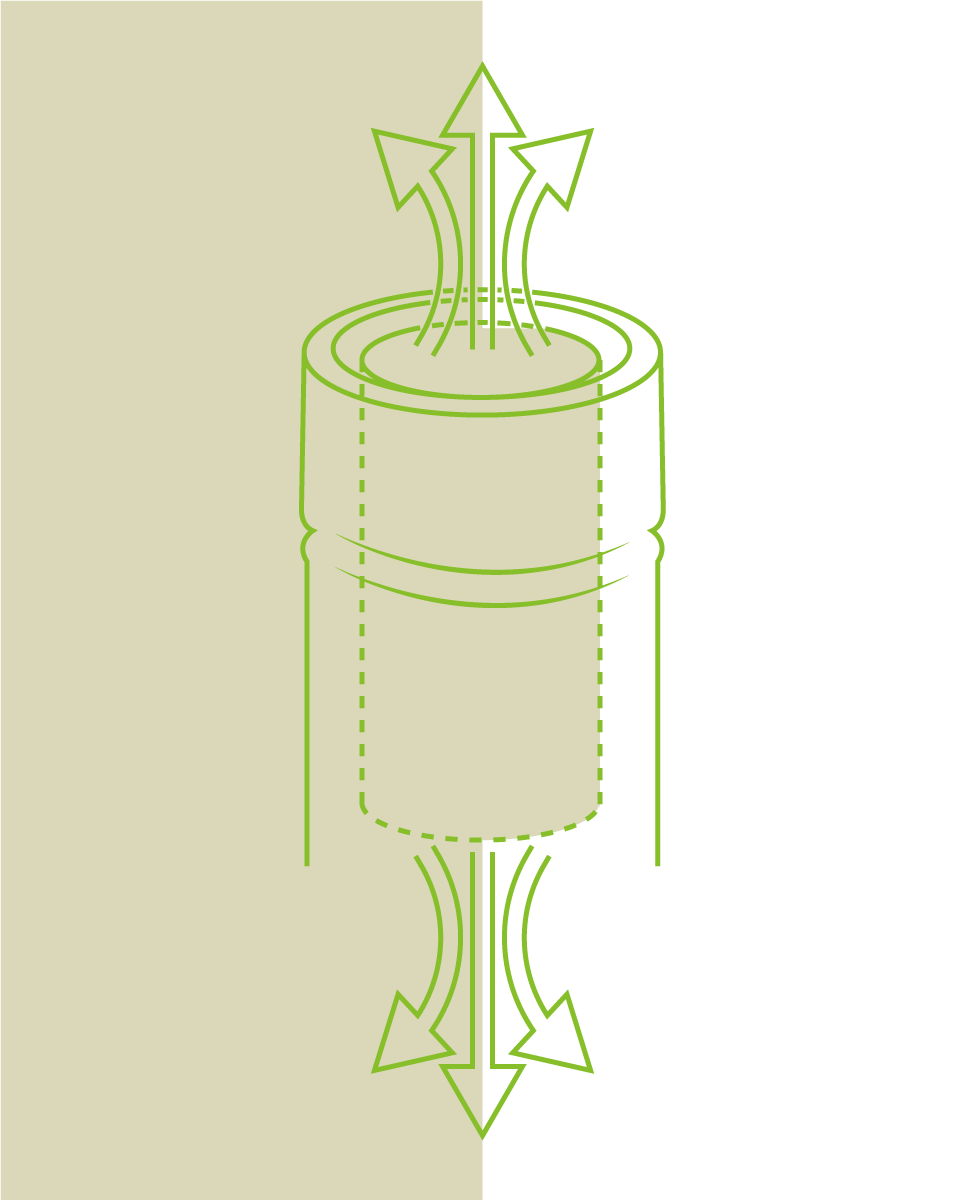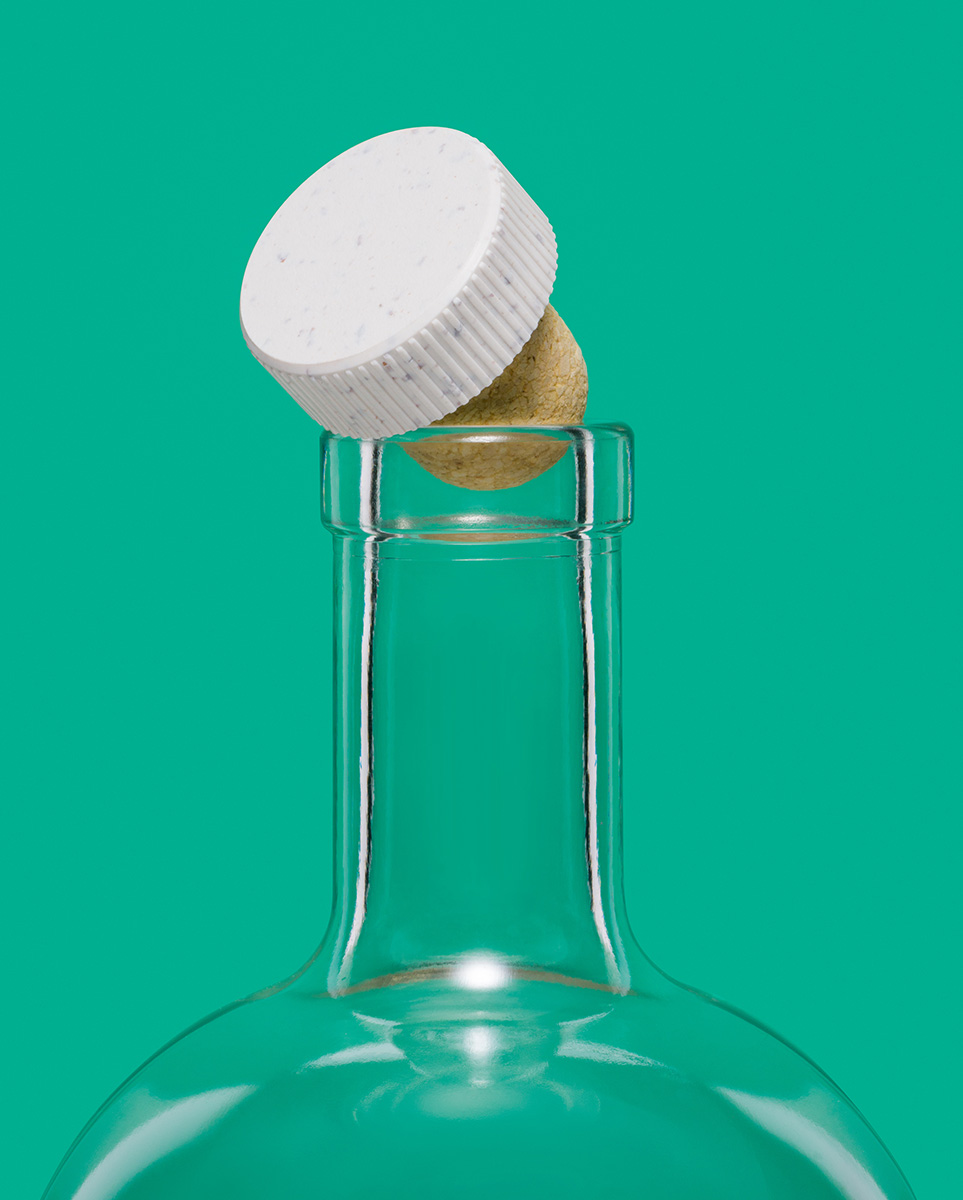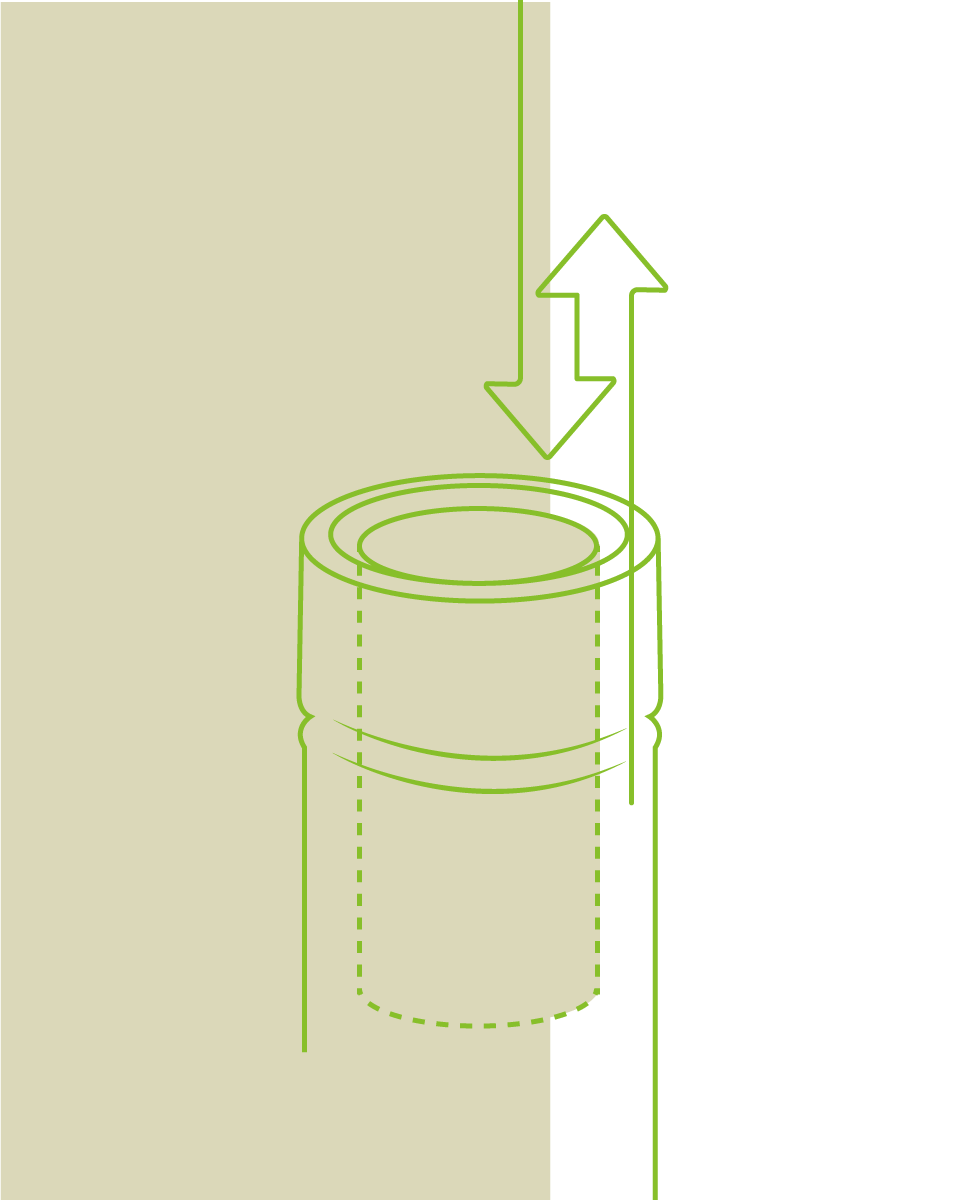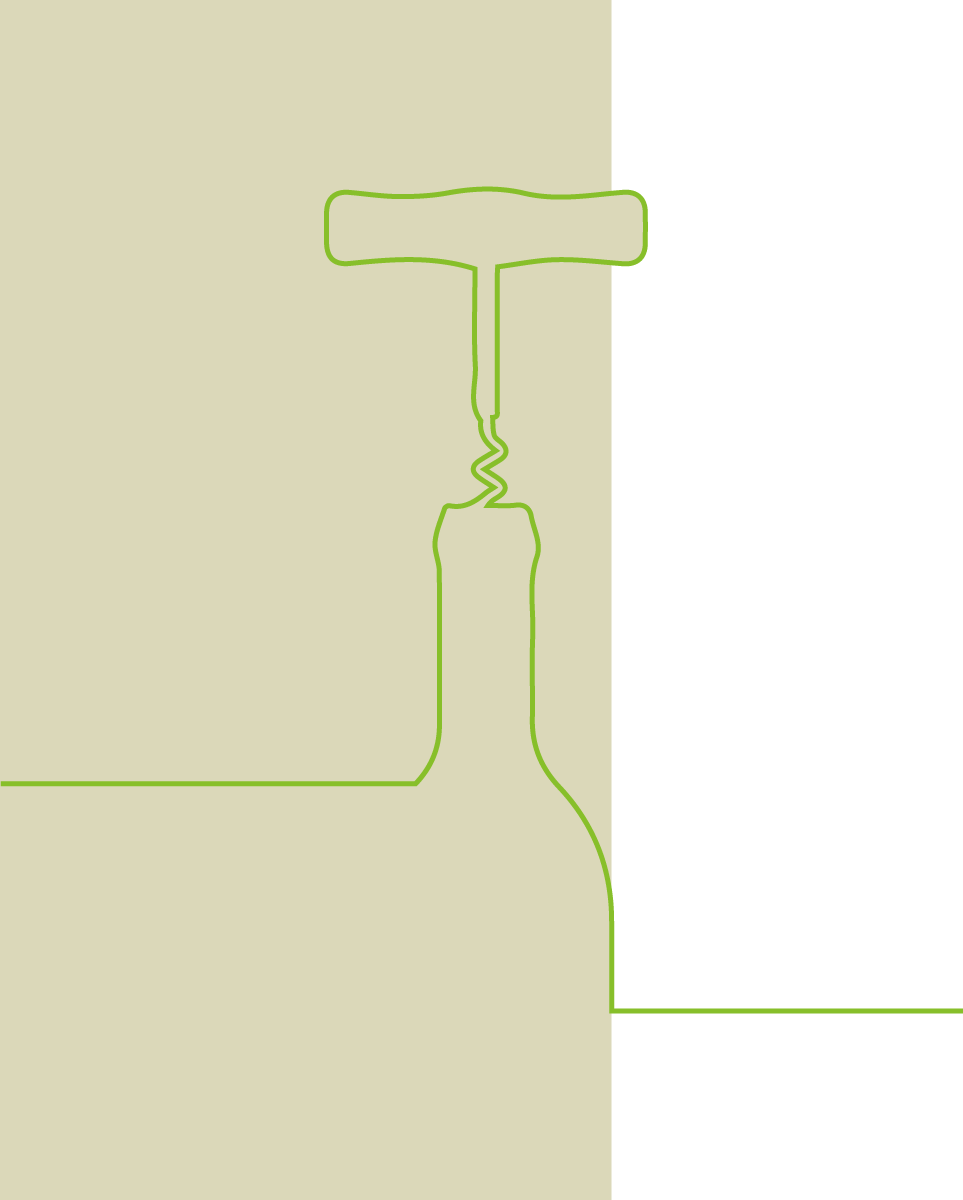Gas Released During Bottling
Gas release through the stopper after bottling.
The evolution of the wine after it is bottled can be affected by the oxygen that passes through the stoppers. In the case of the cork stopper, oxygen can come from two different sources: permeation from the outside through the cork stopper and the release of gas from inside the cork cells.
In this study, we look into the latter question. The typical compression rate (volume change / uncompressed volume) of a cork stopper is about 40%. Taking in account that cork has a void volume ranging between 70 and 80%, cork cells pressure after bottling may reach 2 atm. This pressurised gas will 'escape' to both sides of the stopper over many weeks.
In this study, we measured the gas flow from stoppers in 3 typical starting pressures: 60 mbar, 1000 mbar and 3000 mbar (absolute pressures). These conditions roughly correspond to vacuum bottling, balanced pressures bottling, and bottling without any prior pumping.
These experiments were carried out through continuous monitoring of the pressure, with a high-precision gauge, in the bottle headspace, over several weeks, keeping the bottleneck volume at a constant temperature. In the case of vacuum bottling, the headspace pressure continuously rises over many weeks.
With balanced pressures, the pressure increases for a few days and then begins to decrease. In the case of bottling without pumping, the headspace pressure is typically higher than the cork cells pressure, resulting in a continuous pressure loss. These results, together with those from the cork stopper permeation, are a good representation for those who need to know quantitatively the amount of oxygen in contact with wine in the post-bottling period.



